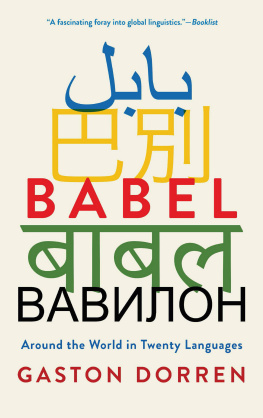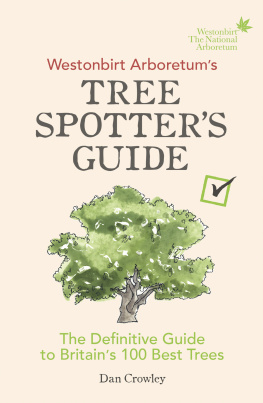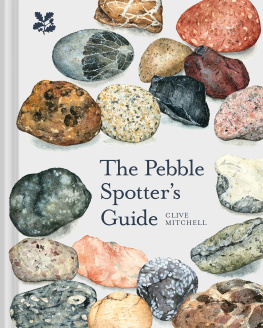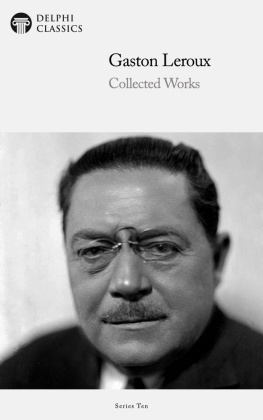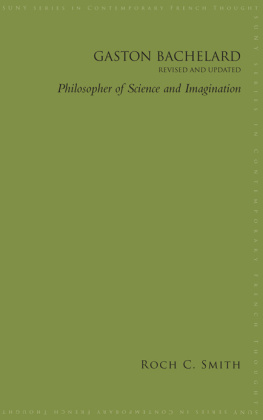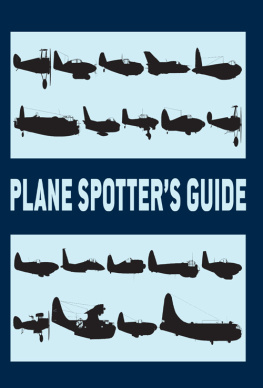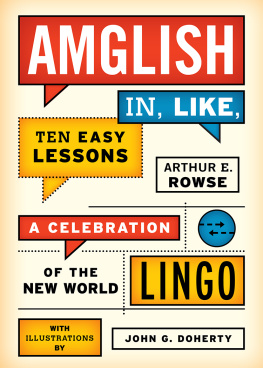Gaston Dorren - Lingo: A Language Spotters Guide to Europe
Here you can read online Gaston Dorren - Lingo: A Language Spotters Guide to Europe full text of the book (entire story) in english for free. Download pdf and epub, get meaning, cover and reviews about this ebook. year: 2014, publisher: Profile Books Ltd, genre: Science. Description of the work, (preface) as well as reviews are available. Best literature library LitArk.com created for fans of good reading and offers a wide selection of genres:
Romance novel
Science fiction
Adventure
Detective
Science
History
Home and family
Prose
Art
Politics
Computer
Non-fiction
Religion
Business
Children
Humor
Choose a favorite category and find really read worthwhile books. Enjoy immersion in the world of imagination, feel the emotions of the characters or learn something new for yourself, make an fascinating discovery.

- Book:Lingo: A Language Spotters Guide to Europe
- Author:
- Publisher:Profile Books Ltd
- Genre:
- Year:2014
- Rating:4 / 5
- Favourites:Add to favourites
- Your mark:
- 80
- 1
- 2
- 3
- 4
- 5
Lingo: A Language Spotters Guide to Europe: summary, description and annotation
We offer to read an annotation, description, summary or preface (depends on what the author of the book "Lingo: A Language Spotters Guide to Europe" wrote himself). If you haven't found the necessary information about the book — write in the comments, we will try to find it.
Lingo: A Language Spotters Guide to Europe — read online for free the complete book (whole text) full work
Below is the text of the book, divided by pages. System saving the place of the last page read, allows you to conveniently read the book "Lingo: A Language Spotters Guide to Europe" online for free, without having to search again every time where you left off. Put a bookmark, and you can go to the page where you finished reading at any time.
Font size:
Interval:
Bookmark:
Lingo
A language spotters guide to Europe
GASTON DORREN is a linguist, journalist and polyglot. He speaks Dutch, Limburgish, English, German, French and Spanish, and reads Afrikaans, Frisian, Portuguese, Italian, Catalan, Danish, Norwegian, Swedish and Luxembourgish. He is the author of two books in Dutch Nieuwe tongen (New Tongues) on the languages of migrants, and Taaltoerisme (Language Tourism), on which Lingo is based and an app, the Language Lovers Guide to Europe. When not writing, he likes to perform songs in several languages, of course. Gaston lives with his wife in Amersfoort, the Netherlands.
Lingo
A language spotters guide to Europe
Gaston Dorren
With contributions by Jenny Audring, Frauke Watson and Alison Edwards (translation)

First published in Great Britain in 2014 by
Profile Books, 3A Exmouth House
Pine Street, Exmouth Market
London, EC1R OJH
www.profilebooks.com
Copyright 2014 by Gaston Dorren
Typeset in Gentium to a design by Henry Iles.
The moral right of the author has been asserted.
All rights reserved. Without limiting the rights under copyright reserved above, no part of this publication may be reproduced, stored or introduced into a retrieval system, or transmitted, in any form or by any means (electronic, mechanical, photocopying, recording or otherwise), without the prior written permission of both the copyright owner and the publisher of this book.
This book was published with the support of the Dutch Foundation for Literature.

e-ISBN 978-1782831396
Two languages in one head? No one can live at that speed! Good Lord, man, youre asking the impossible. But the Dutch speak four languages and they smoke marijuana. Yes, but thats cheating.
Eddie Izzard, Dress to Kill
Contents

Introduction
What Europeans speak
The attitude of English speakers to foreign languages can be summed up thus: lets plunder, not learn them. A huge proportion of English vocabulary is of French, Latin or otherwise non-native origin. But the natives have never had much of a taste for acquiring a foreign language in its entirety. Anything short of speaking the language I shall be delighted to undertake, Dickens had Mr Meagles say in Little Dorrit, while a century and a half later, British comedian Eddie Izzard explains his countrys monolinguals: Two languages in one head? No one can live at that speed.
These are caricatures, of course, but the British passion for language, though intense, generally takes form in a somewhat exclusive fascination for English. Not only are the British incorrigible punners and ardent crossword puzzlers, but many are also enthralled by the history and diversity of the native tongue. And while the British love to complain about its quirky grammar and inconsistent spelling, I wonder how many would really want it otherwise. All this weirdness makes for excellent stories. What more could one wish for?
Well, how about the life of other languages? In both their spoken and written forms, Europes scores of languages may sound and look forbidding, but the stories about them are compelling. This book sets out to tell sixty of the best. You will hear how French, seemingly so mature, is really guided by a mother fixation. You will discover why Spanish sounds like a submachine gun. And if you thought German spread across Europe at gunpoint, prepare to be proved wrong. You will also venture further afield, as we explore the oddly democratic nature of Norwegian, the gender-bending tendencies of Dutch, the bloody battles fought over Greek and the linguistic orphans of the Balkans. Yet further off the beaten track you will be guided to the ancient heirlooms of Lithuanian, the snobbery of sorbian and the baffling ways of Basque. And believe it or not, some of Europes most incredible language stories are to be found right on Britains doorstep outlandish and inlandish at the same time, so to speak, in the islands Celtic and travellers tongues.
Lingo is a guidebook of sorts, but in no sense an encyclopedia: while some chapters are short portraits of entire languages, others centre on an individual quirk or personality. It is intended, as the French so enticingly put it, as an amuse-bouche.
Gaston Dorren, 2014

These two symbols are used at the end of each section, mainly to entertain.  introduces a word or two that English has loaned from the language under discussion, while
introduces a word or two that English has loaned from the language under discussion, while  highlights a word that doesnt exist in English but perhaps should.
highlights a word that doesnt exist in English but perhaps should.
PART ONE
Next of tongue
Languages and their families
Europes two big language families are Indo-European and Finno-Ugric. The lineage of Finno-Ugric is fairly straightforward, as are its modern variants (Finnish, Hungarian, Estonian). But the pedigree of the Indo-Europeans is a real tangle that ranges through Germanic, Romance and Slavic languages, and more. In some respects, though, its story is like any other family saga, complete with conservative patriarchs (Lithuanian), bickering children (Romansh), spitting-image siblings (the Slavics), forgotten cousins (Ossetian), orphans (Romanian and other Balkan languages) and kids who find it hard to cut the apron strings (French).

The life of PIE
Lithuanian
Once upon a time, thousands of years ago (nobody knows quite when), in a faraway land (nobody knows quite where), there was a language that no one speaks today and whose name has been forgotten, if it ever had one. Children learned this language from their parents, just as children today do, and they in turn passed it on to their children, and so on and so forth, for generation after generation. In the course of all the centuries, the old language underwent constant change. It was a bit like Chinese whispers: the last player hearing something quite different from what the first actually said. In this case, the last players are us.
And not only those of us who speak English, of course. Those who speak Dutch, too which is practically the same thing. And German, which is not so different either. And Spanish and Polish and Greek, because if you look closely enough youll see that even they look a bit like English. Further afield there are other languages, like Armenian and Kurdish and Nepalese, where you have to look quite a bit harder still to see the family resemblance. But each and every one of them emerged from a language that was spoken by a people whose name we dont know, perhaps sixty centuries ago. And because no one knows what their language was called, a name has been invented for it: PIE.
PIE stands for Proto-Indo-European. This is not a perfect name. The word proto (first) implies that no language preceded it, which is not the case, while the label Indo-European suggests a language area thats confined to India to Europe. In fact, almost everyone in the Americas speaks a language thats descended from PIE, while in India more than 200 million people speak languages that have no historical ties to PIE at all. That said, more than 95 per cent of Europeans now speak an Indo-European language in other words, a language evolved from PIE.
Next pageFont size:
Interval:
Bookmark:
Similar books «Lingo: A Language Spotters Guide to Europe»
Look at similar books to Lingo: A Language Spotters Guide to Europe. We have selected literature similar in name and meaning in the hope of providing readers with more options to find new, interesting, not yet read works.
Discussion, reviews of the book Lingo: A Language Spotters Guide to Europe and just readers' own opinions. Leave your comments, write what you think about the work, its meaning or the main characters. Specify what exactly you liked and what you didn't like, and why you think so.

